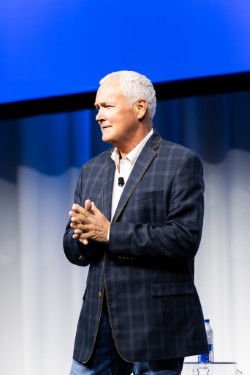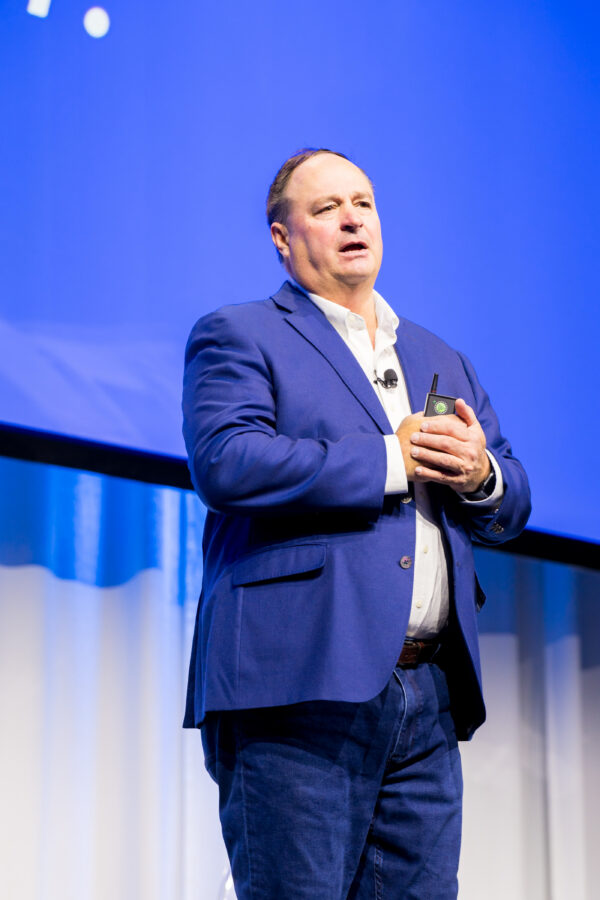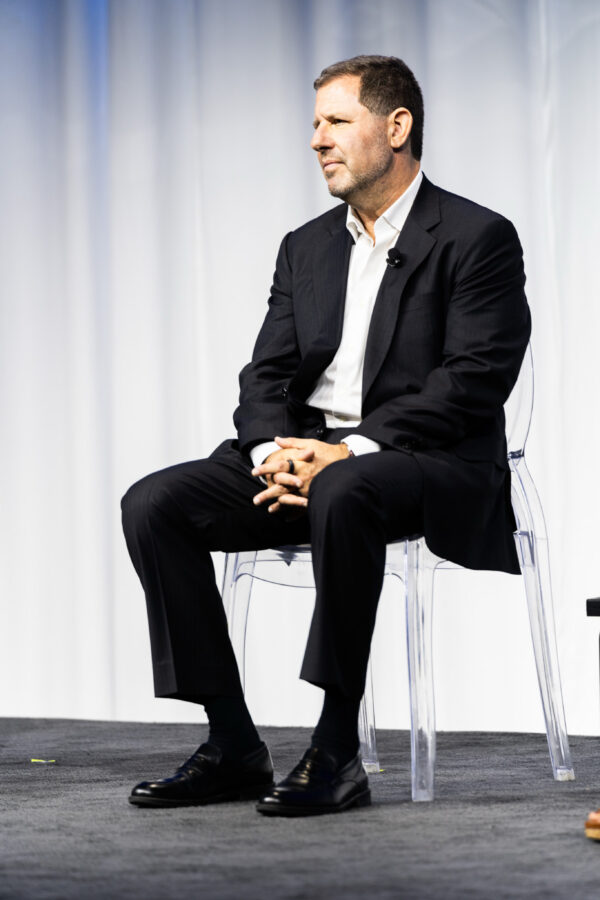With lives saved, Hancock expands its longevity view of life insurance

Kelley King thought taking a five-minute blood test called Galleri offered by his life insurance company would qualify him for points that would win him a premium discount. By joining the health program, he’d already qualified for a free Apple Watch, so he figured the blood test might push him into “Platinum” status and make him eligible for more goodies.

It turned out he had misread the brochure. The 63-year-old investment and wealth manager did not get any points or upgrade for the blood sample. What he got was a call from a patient advocate named Lilly who told him he had cancer.
“And I'm like: ‘Who are you? Is this a prank call?’” said King, reminiscing about the fateful day.
Twice he submitted for the test. On both occasions, he tested positive – and both times his primary care physician told him there was no sign of cancer, despite what the blood test was telling him.
“He said, ‘Go home and live your life.' He had never heard of the Galleri test,” said King.
Overruling his doctor’s recommendation, King asked for an ultrasound scan, which indeed found evidence of metastatic breast cancer.
A miraculous chain of events
Now, after a year of treatment, King is cancer-free, and he credits a miraculous chain of events that saved his life: if he hadn’t misread the insurance literature; if Lilly wasn’t persistent about retaking the blood test; if he hadn’t insisted on the ultrasound after his doctor told him it wasn’t needed. But most of all, he said, if his insurer, John Hancock, had not offered the Galleri test as part of its Vitality Program, which motivates and rewards customers for adopting healthy habits.
“I added the Vitality rider because it just made sense,” King said. “Not because I really thought it would change my life. The main thing that motivated me was I got a free Apple Watch.”
Hancock says stories like King’s are not rare and are in fact piling up since it added the Galleri test, offered by California health care company GRAIL, as part of its Vitality Program, which it unveiled in 2015.

“Along with the stories we’re collecting a lot of data,” said Hancock President and CEO Brooks Tingle. “We’re not ready to publish the data yet but with every increment, we’re getting to a credibility threshold that shows mortality rates differing by Vitality status, whether they’re participating in the program or not.”
Tingle headed Hancock's second annual two-day longevity symposium in Boston this month which brought hundreds of people to hear from health care, insurance, science, and business leaders, about the future of health, wellness, and longevity.
Hancock has been at the forefront of a trend among a handful of life insurers to help their policyholders get healthy and live (and pay premiums) longer.
“We're more convinced than ever that this is the right way to go,” he told InsuranceNewsNet. “And honestly, I don't understand why every insurance company isn’t getting involved in it. If they don't see the impact on the bottom line, I don't think they're looking at it. There is no other industry that stands to benefit more from people living longer. So, I don't get it.”
The symposium, which filled Boston’s Hynes Convention Center, was less a life insurance event than one devoted to nutrition, weight management, stress, and behavioral psychology. The agenda featured neuroscientists, medical officers, sleep scientists, and something called Functional Medicine experts.
Caring about customer longevity
“We believe very strongly that the life insurance industry, your life insurance company, should care an awful lot about you living a longer, healthier, and better life,” Tingle told the assembled audience. “So, if for no other reason than overt self-interest, I don't understand why every life insurance company isn't trying to do this.”
In its efforts to stress longevity, Hancock earlier this year became the first life insurance company to offer discounted access to a whole-body scan called Prenuvo, which detects some cancers, lifestyle diseases, neurological diseases, and other health conditions. It also offers Vitality members discounts on health and fitness wearable accessories.
But the insurer is particularly high on GRAIL and its Galleri early detection test. Hancock, a unit of Manulife, was the first insurance carrier to make the screening technology available. Since initially offering it to a pilot group of policyholders in 2022, it expanded the option to all Vitality PLUS customers. The company does not disclose how many policyholders joined Vitality but claims the numbers are large and getting larger.
The Galleri test scans for a common signal from more than 50 types of cancer, most of which have no recommended screening protocol.

“Our health care system will become completely unsustainable just trying to treat late-stage cancer and fix what's broken,” said Dr. Josh Ofman, president of GRAIL. “We have to get to prevention, prediction, and early detection if we hope to make it sustainable. And now we have technologies that can really help do that. We've been using archaic technologies to date and that's been part of the problem.”
Grail’s immediate goal is to get Medicare and insurance reimbursement for its test and is hopeful FDA approval will come soon, and the company will expand internationally.
“Without that broad reimbursement, this will be an out-of-pocket test, and that's going to have limited utility at population scale,” Ofman said. “The benefit to the public health of introducing a technology like this is getting it to everybody; underserved communities, ethnically diverse communities, and gender diverse communities.”
The individual cost for the Galleri test is currently $949.
“We have a line of sight to getting that down over time,” Ofman said. You need payers to reimburse it, you need Medicare to cover it and reimburse it, to get to true population scale, where we will have a massive public health benefit.”
© Entire contents copyright 2024 by InsuranceNewsNet.com Inc. All rights reserved. No part of this article may be reprinted without the expressed written consent from InsuranceNewsNet.com.
Doug Bailey is a journalist and freelance writer who lives outside of Boston. He can be reached at [email protected].





KKR incorporates annuity company into massive investing juggernaut
Why investors fire advisors (and why they keep them)
Advisor News
- Advisor to SEC: show the court your guidance on commission payments
- Americans Lack Plans for Retirement Income, Allianz Life Study Finds
- Turning political uncertainty into portfolio gold
- Why investors fire advisors (and why they keep them)
- Women seek referrals from other women
More Advisor NewsAnnuity News
Health/Employee Benefits News
Life Insurance News